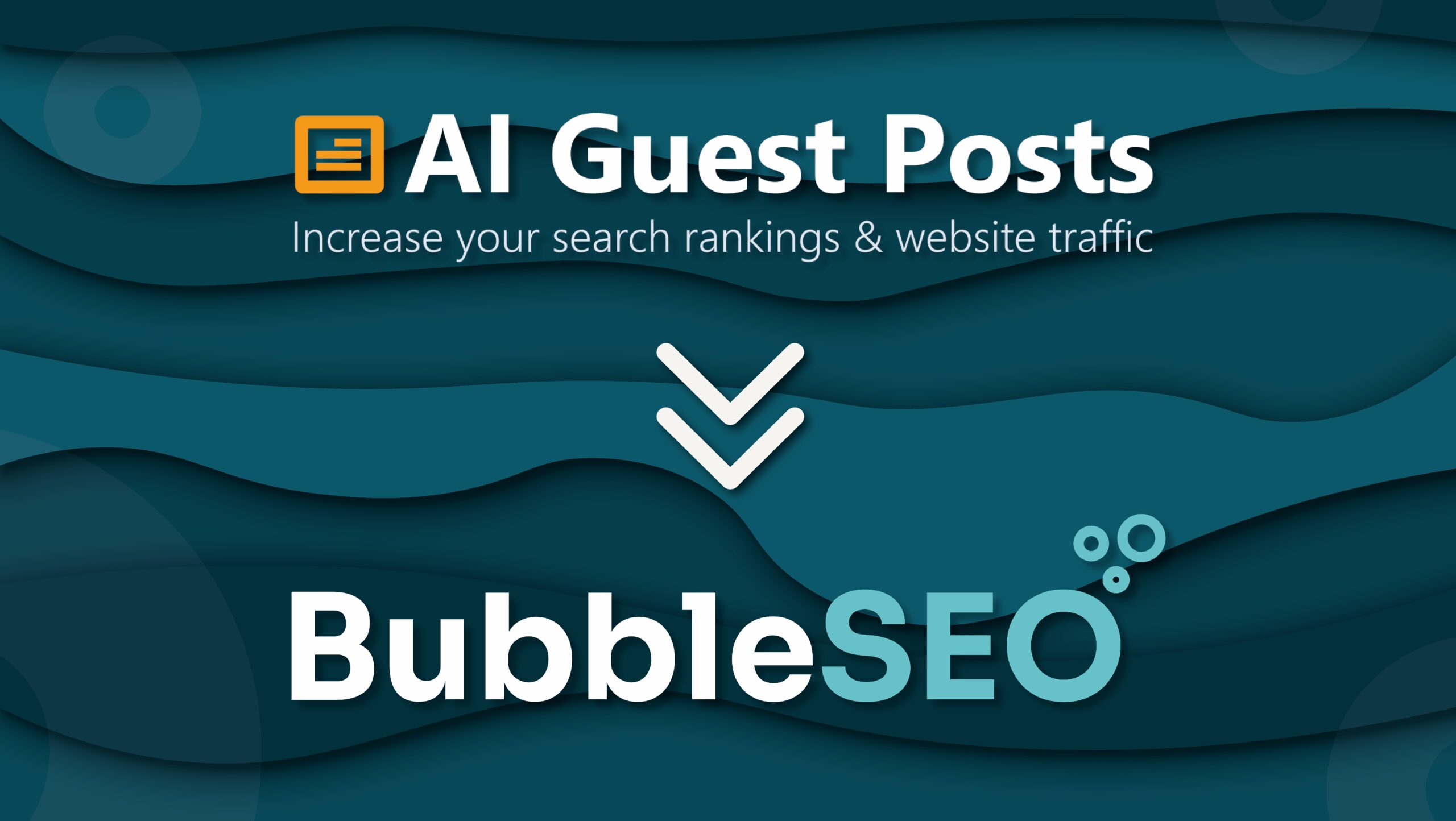
With Black Friday almost upon us, we have put together some tips of how you can get ahead with your socials

Effective keyword targeting is the cornerstone of successful content marketing. By strategically incorporating the right keywords, you can enhance your SEO, drive traffic, and improve your overall content performance.

Effective keyword targeting is the cornerstone of successful content marketing. By strategically incorporating the right keywords, you can enhance your SEO, drive traffic, and improve your overall content performance. In this article, we’ll discuss how to target keywords in your content marketing, focusing on content marketing, SEO link building, and SEO content.
Before diving into keyword research, it’s crucial to understand your audience. Who are they? What problems are they trying to solve? Knowing your audience helps you select keywords that resonate with them and meet their search intent.
Use tools like Google Keyword Planner, Ahrefs, or SEMrush to find relevant keywords. Look for:
High search volume: Indicates that the keyword is frequently searched.
Low competition: Easier to rank for.
Long-tail keywords: More specific and often less competitive.
For example, if you’re focusing on “content marketing”, related long-tail keywords might include “content marketing strategies for small businesses” or “how to improve content marketing ROI”.
Once you have your keywords, integrate them into high-quality content. Here are some tips:
Natural Integration: Ensure keywords fit naturally into your text. Forced keywords can harm readability and SEO.
Content Relevance: Your content should provide value and be relevant to the keyword. For instance, a piece on “SEO content” should cover aspects like keyword density, meta descriptions, and internal linking.
Use Variations: Use keyword variations and synonyms to avoid keyword stuffing and make the content more natural.
On-page optimisation is crucial for SEO. Here’s how to do it:
Title Tag: Include your primary keyword in the title.
Headings: Use H1, H2, and H3 tags with your keywords.
URL: Make sure the URL is clean and includes your keyword.
Meta Description: Write a compelling meta description with your keyword.
Alt Text: Use keywords in image alt texts.
For example, if you’re writing about “SEO link building”, your title could be “Effective SEO Link Building Strategies for 2024”.
Link building remains a critical part of SEO. Here’s how to incorporate it:
Internal Links: Link to other relevant content on your site. This helps search engines understand your site structure and improve rankings.
External Links: Link to authoritative sites. This adds value to your content and boosts credibility.
Backlinks: Earn backlinks from reputable sites. Guest blogging, partnerships, and creating shareable content can help with this.
For instance, if your content is about “SEO content”, include internal links to other SEO-related articles on your site and external links to high-authority SEO resources.
SEO is an ongoing process. Use tools like Google Analytics and Search Console to monitor your content’s performance. Look at metrics such as:
Organic Traffic: Indicates the number of visitors coming from search engines.
Bounce Rate: Shows how many visitors leave your site after viewing only one page.
Conversion Rate: Measures how many visitors take the desired action (e.g., sign up, purchase).
Based on these metrics, adjust your keyword strategy and content to improve performance.
Targeting keywords effectively in your content marketing can significantly boost your SEO and overall online presence. By understanding your audience, conducting thorough keyword research, creating high-quality content, optimising on-page elements, building robust link-building strategies, and continually monitoring performance, you can ensure your content ranks well and meets your marketing goals.
Start implementing these strategies today to see tangible improvements in your content marketing efforts.
Grow your business online with content marketing solutions from Bubble SEO today.
Place An Order
With Black Friday almost upon us, we have put together some tips of how you can get ahead with your socials

We're excited to announce that AI Guest Posts has undergone a transformative rebranding and is now known as Bubble SEO. This strategic move has allowed the business to develop within the digital landscape and highlight our commitment to providing digital marketing solutions tailored to enhance online visibility and engagement for our customers. Bubble SEO remains dedicated to delivering high-quality, targeted content and effective SEO solutions that align with evolving digital marketing trends. Here is a little more information about our brand and its services. Our services: At Bubble SEO, we specialise in three core services, with content writing being a new feature to the website: Guest Posting: Which aims to enhance your online presence with high-quality guest posts on authoritative websites, driving traffic and boosting your SEO rankings. Link Building: Helps build a robust backlink profile with strategic link building services that improve your website's authority and visibility. Content Writing: Provides engaging content for your audience with compelling content tailored to your brand voice and SEO needs. Benefits of Bubble SEO: We have now made changes to the booking process to simplify this, and updated the customer dashboard section in the hope to improve our existing values below: Enhanced Service Quality: With our rebranding comes a renewed focus on delivering top-notch services that exceed your expectations. Improved User Experience: Our new website offers a streamlined interface, making it easier for you to navigate and access our services. Expanded Network: Benefit from our expanded network of partner websites, ensuring broader outreach and better opportunities for your business. Loyalty Rewards: As a token of our appreciation for the continued support of our bookers, we have now introduced loyalty rewards: Exclusive Discounts: Enjoy special discounts as a loyal Bubble SEO customer, with the more points you acquire, the more exciting offers you will unlock. We're thrilled about this new chapter as Bubble SEO and look forward to continuing to be your trusted partner in achieving your digital marketing goals. Stay tuned for more exciting updates and announcements! Discover the new Bubble SEO and elevate your online presence today! Jennifer Hobson – Digital Marketing [email protected] Heather Ryan – Business Development [email protected]

Guest Posting is a practice where individuals or companies contribute articles to other websites or blogs.

Content marketing research is an essential marketing technique, specifically looking into what should be involved in

The world of SEO is constantly evolving, and staying on top of the latest trends is critical to maintaining online visibility and driving traffic. As we move through this year, some key SEO shifts have emerged that are reshaping the way businesses approach search engine optimisation. Whether you're a content creator, business owner, or digital marketer, these are the SEO trends you can't afford to overlook. 1. Link Building is Evolving Link building remains a core component of SEO, but it's becoming more sophisticated. Google’s algorithms are placing a greater emphasis on the quality and relevance of backlinks rather than sheer quantity. Building relationships with authoritative websites through guest posting and earning editorial links are now essential strategies for creating strong, natural backlink profiles. The focus should be on acquiring links that are relevant to your niche and will offer real value to users. 2. The Power of Content Continues to Grow Quality content is still king, but search engines are becoming smarter about recognising well-researched, authoritative, and relevant information. SEO now demands content that not only addresses user queries but also provides a deeper, more engaging experience. Guest posting is an effective way to distribute this high-quality content, enabling brands to reach new audiences while securing valuable backlinks. 3. User Experience (UX) and SEO Are Now Inseparable With the introduction of Google's Core Web Vitals, the overall user experience has become a critical ranking factor. Fast loading times, mobile-friendliness, and smooth navigation are now essential for SEO success. This means that your site must not only be optimised for search engines but also deliver an excellent user experience to keep visitors engaged. 4. Voice Search Optimisation Voice search is growing rapidly with the increased use of smart speakers and mobile assistants like Siri and Alexa. To stay competitive, SEO strategies need to accommodate more natural, conversational language that aligns with how people use voice search. This trend emphasises the importance of long-tail keywords and question-based content. 5. The Rise of AI in SEO AI-powered tools and algorithms are influencing SEO in unprecedented ways. Google's AI algorithm, RankBrain, helps determine the most relevant search results based on user intent, making it critical to understand the audience’s needs and craft content accordingly. SEO professionals must now consider how AI-driven features, like natural language processing and predictive search, will impact their strategies. 6. Local SEO Becomes More Prominent Local SEO continues to grow in importance, especially for small businesses. Google My Business listings, reviews, and local citations now play a significant role in helping companies appear in location-based searches. If you haven't yet optimised your site and content for local searches, this trend can no longer be ignored. The SEO landscape is always in flux, and staying on top of these trends is crucial for maintaining a competitive edge. Whether through advanced link building, guest posting, improving user experience, or leveraging AI, businesses need to adapt their strategies to the evolving digital ecosystem. By focusing on quality and relevance in every aspect of SEO, you’ll be better positioned for long-term success in search rankings.

In today’s digital landscape, shareable content is a cornerstone of effective marketing strategies. When executed correctly, it can amplify your brand’s reach, engage your audience, and boost your search engine rankings. But how do you create content that people can’t resist sharing? Let’s dive into some actionable tips that will help you achieve content marketing success. 1. Know Your Audience Inside and Out Understanding your audience is the first step to creating content they’ll love. Use tools like Google Analytics and Google Trends to identify topics that resonate with your audience. Consider their pain points, interests, and the platforms they frequent. This insight will guide you in crafting targeted content that hits the mark. 2. Create Eye-Catching Headlines Your headline is the first thing readers see—it’s your chance to grab their attention. A compelling headline should be clear, intriguing, and keyword-rich to perform well in search results. Tools like CoSchedule’s Headline Analyzer can help refine your titles for maximum impact. 3. Focus on Visual Appeal Content with visuals is more likely to be shared than text-only posts. Include high-quality images, infographics, or videos to break up text and add value. Platforms like Canva make it easy to design professional-looking graphics that align with your brand. 4. Incorporate Storytelling Humans are hardwired to connect with stories. Share real-life examples, case studies, or anecdotes to make your content relatable. Storytelling evokes emotions and fosters a deeper connection with your audience, increasing the likelihood of shares. 5. Optimise for SEO Without search engine optimisation (SEO), even the best content can go unnoticed. Incorporate keywords naturally into your content, use meta tags, and include internal links to boost visibility. For expert help, explore services like Bubble SEO, which specialises in enhancing your online presence through targeted strategies. 6. Make It Actionable Readers love content they can immediately put to use. Provide practical tips, step-by-step guides, or downloadable templates to make your content valuable. When people find your content useful, they’re more likely to share it with others. 7. Leverage Social Proof Add testimonials, reviews, or user-generated content to boost credibility. When others see your content being shared and endorsed, they’re more likely to trust and share it too. 8. Encourage Sharing Sometimes, all it takes is a little nudge. Add social sharing buttons to your website and blog posts, making it easy for readers to spread the word. Tools like ShareThis can help you integrate shareable features seamlessly. 9. Analyse and Improve Track your content’s performance to understand what works and what doesn’t. Use insights from tools like Google Search Console to fine-tune your strategy and focus on producing content that drives results. Conclusion Creating shareable content is as much an art as it is a science. By understanding your audience, incorporating SEO, and focusing on value, you can craft content that resonates and spreads organically. Need help optimising your content strategy? Visit Bubble SEO for expert advice and resources tailored to your business needs. Start creating content that not only captures attention but inspires action and engagement. Your audience—and your bottom line—will thank you!

Search Engine Optimisation (SEO) is often viewed as a complex and ever-changing field, but its core principles remain constant. If you're looking to increase your website's visibility, generate traffic, and climb the search engine ranks, understanding the foundational elements of SEO is critical. This article will unlock the secrets of SEO, covering essential topics like link building, content marketing, and optimising for search engine rankings. 1. The Foundation of SEO: Why It Matters At its core, SEO is about making your website more visible to search engines like Google, Bing, or Yahoo. The higher your site ranks on search engine results pages (SERPs), the more likely users are to visit your site. Why does this matter? Studies show that over 75% of users never scroll past the first page of search results, making it crucial to rank as high as possible. 2. The Power of Content Marketing Content marketing is a central part of any successful SEO strategy. Search engines prioritise websites that regularly publish high-quality, relevant content. This not only helps with ranking but also establishes your brand as an authority in your industry. Focus on High-Quality Content: Google’s algorithms reward websites that produce in-depth, well-researched content. Blogs, case studies, infographics, and videos that provide real value to your audience are more likely to rank well. Consistency is Key: Regularly updating your website with fresh content signals to search engines that your site is active and valuable. Use Targeted Keywords: When creating content, make sure to incorporate keywords that your audience is searching for. Tools like SEMrush or Google Keyword Planner can help identify relevant keywords with high search volume. 3. Link Building: The Backbone of SEO Link building is one of the most important ranking factors for search engines. It involves getting other reputable websites to link back to your content, signaling to search engines that your site is authoritative and trustworthy. Earn Quality Backlinks: Focus on earning backlinks from credible, high-authority sites within your industry. Guest posting on blogs, securing mentions in industry publications, and creating shareable resources are great ways to attract backlinks. Avoid Low-Quality Links: Links from spammy or irrelevant sites can harm your rankings. Always aim for quality over quantity when building links. Internal Linking: Don’t overlook the power of internal links. By linking to other relevant pages on your website, you improve your site’s structure, making it easier for both users and search engines to navigate. 4. On-Page SEO: Optimising Each Page On-page SEO involves optimising individual pages on your site to help search engines understand and rank your content. Title Tags and Meta Descriptions: Your title tag is one of the first things search engines and users see. Make sure your primary keyword is included. Meta descriptions, while not a direct ranking factor, improve click-through rates when they are engaging and relevant. Headers (H1, H2, H3): Break your content into readable sections using headers, which help both users and search engines digest the material. Image Optimisation: Use descriptive alt text for images and compress them to ensure your page loads quickly, another critical ranking factor. 5. Technical SEO: Enhancing Site Performance Beyond content and links, technical SEO is crucial for ensuring your site is easy to crawl, secure, and optimised for all devices. Mobile Optimisation: As more users search on mobile devices, Google now considers mobile-friendliness a key ranking factor. Use responsive design to ensure your site looks great and functions well on mobile. Site Speed: Slow-loading sites frustrate users and are penalised by search engines. Tools like Google PageSpeed Insights can help you improve load times. Crawlability and Indexing: Make sure your site is easy for search engines to crawl and index. Submit an XML sitemap to Google Search Console, and fix any errors that may block search engines from accessing your content. 6. Search Engine Ranks: Climbing the SERPs The ultimate goal of SEO is to rise to the top of search engine ranks. But getting there takes time, effort, and the right strategy. Track Your Progress: Use tools like Google Analytics, Moz, or Ahrefs to monitor your search rankings and track organic traffic over time. This will help you identify what’s working and what needs improvement. Competitor Analysis: Regularly check in on your competitors to see how they’re performing in search results. Understanding their strategies can reveal opportunities for your own SEO improvement. Continuous Optimisation: SEO isn’t a one-time task—it requires regular adjustments. Keep up with the latest trends and algorithm updates to ensure your site remains optimised for long-term success. 7. The Future of SEO SEO is always evolving, and staying ahead of the curve is crucial for maintaining your search rankings. With the rise of artificial intelligence, voice search, and new ranking factors like Core Web Vitals, it’s more important than ever to stay informed about SEO developments. Focus on user experience, creating valuable content, and building authoritative links to future-proof your SEO strategy. Conclusion SEO doesn’t have to be a mystery. By focusing on key areas like content marketing, link building, and technical SEO, you can unlock the secrets to improving your search engine rankings. SEO is a long-term investment, but with a clear strategy and consistent effort, you’ll start seeing the rewards in higher rankings, increased traffic, and greater visibility for your brand. Master the essentials of SEO today and watch your website soar to new heights!